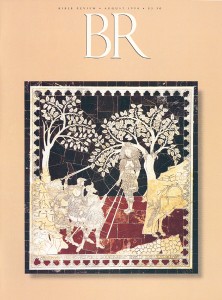Fundamentalist Interpretation is “Naively Literalist”—An Excerpt from the Catholic Report on the Bible
Sidebar to: The Catholic Church and Bible Interpretation
“Fundamentalist interpretation starts from the principle that the Bible, being the word of God, inspired and free from error, should be read and interpreted literally in all its details. But by ‘literal interpretation’ it understands a naively literalist interpretation, one, that is to say, which excludes every effort at understanding the Bible that takes account of its historical origins and development. It is opposed, therefore, to the use of the historical-critical method, as indeed to the use of any other scientific method for the interpretation of Scripture.
The fundamentalist interpretation had its origin at the time of the Reformation, arising out of a concern for fidelity to the literal meaning of Scripture. After the century of the Enlightenment it emerged in Protestantism as a bulwark against liberal exegesis.
The actual term fundamentalist is connected directly with the American Biblical Congress held at Niagara, N.Y., in 1895. At this meeting, conservative Protestant exegetes defined ‘five points of fundamentalism’: the verbal inerrancy of Scripture, the divinity of Christ, his virginal birth, the doctrine of vicarious expiation and the bodily resurrection at the time of the second coming of Christ. As the fundamentalist way of reading the Bible spread to other parts of the world, it gave rise to other ways of interpretation, equally ‘literalist,’ in Europe, Asia, Africa and South America. As the 20th century comes to an end, this kind of interpretation is winning more and more adherents, in religious groups and sects, as also among Catholics.
Already a library member? Log in here.
Institution user? Log in with your IP address.

